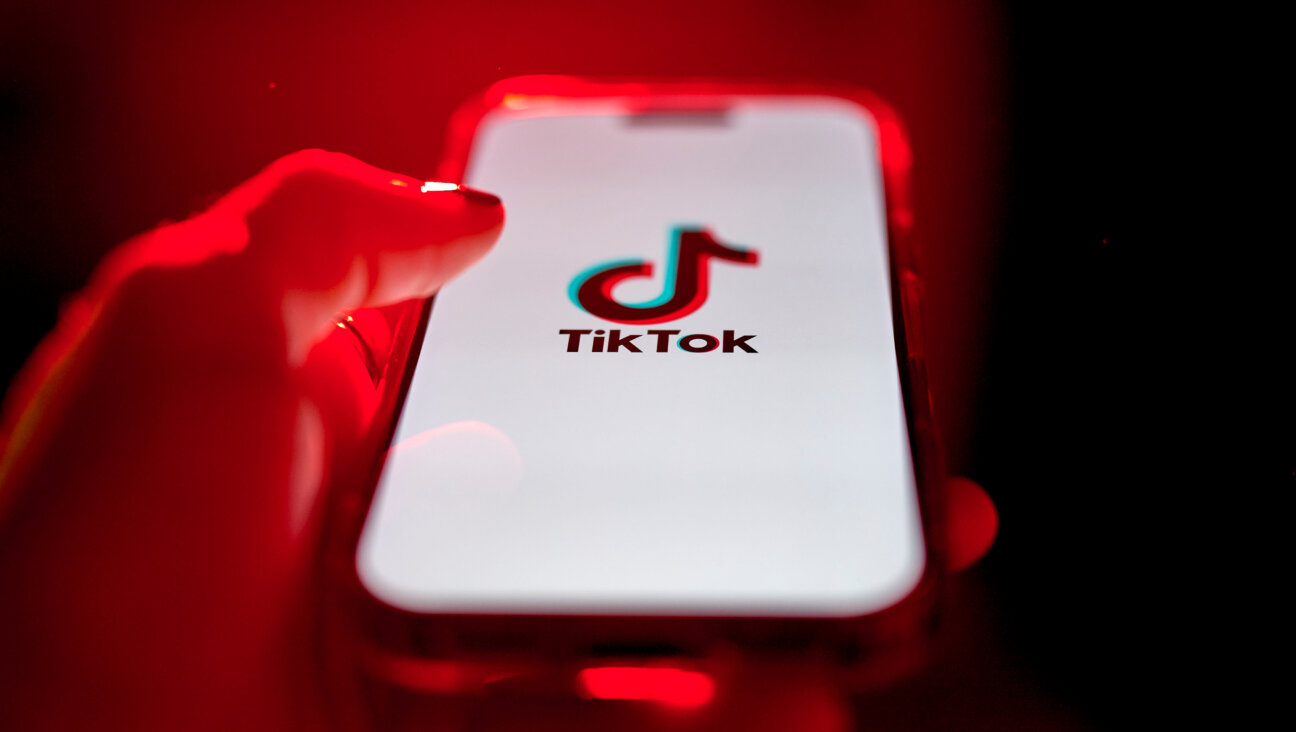Jewish Films To Watch at Sundance
The Sundance Legend has become as much a part of Hollywood lore as the Lana Turner at Schwabs story: An upstart with a vision maxes out four credit cards, borrows his neighbor’s movie camera, makes an independent film, takes it to the Sundance Film Festival, sells it to a distributor and makes a million.
Andrew Jarecki brings to this year’s Sundance a new kind of legend — an indie who has already made a million ($388 million, to be exact, which is what AOL paid for his company, Moviefone, in 1999, keeping him on as CEO). The multitalented mogul, who has also penned and performed songs for the WB’s late, lamented “Felicity,” is showing his documentary “Capturing the Friedmans,” one of several offerings topping the list of must-see films with Jewish themes.
Most of the filmmakers descending on Park City, Utah, this week probably aren’t Internet millionaires but, like Jarecki, they’ll be spending their 10 days at Sundance meeting with potential buyers and searching for distributors. When there are 134 full-length films in a score of different theaters, all scheduled on top of one another, advance buzz can often determine what gets seen and what is forgotten.
Buzz for “Friedmans” is strong. In 1987, New York Newsday broke the story of Arnold Friedman, an upper-middle-class high school teacher from Great Neck, Long Island, who was arrested as part of a federal sting operation against mail-order pornography. Friedman’s wife ran a childcare center from their home; Friedman was also a buyer of child pornography. As detailed in “Capturing the Friedmans,” during the arrest agents began to suspect that children who came to the Friedmans’ home for day care and after-school computer classes were being abused. Jarecki was given surprising access to the family’s home videos, which he uses to sort through the various versions of the truth regarding the charges. The filmmaker also examines the Great Neck community that turned against the Friedmans and the legal system that baffled them.
A Friedman figures in another Sundance documentary — Andrei Friedman, who dropped his Hungarian- Jewish name for the more dashing moniker Robert Capa when he immigrated to Paris from Budapest. In “Robert Capa: In Love and War,” acclaimed filmmaker Anne Makepeace re-creates the life and work of this legendary war photographer. When Friedman first arrived in Paris, “Robert Capa” was wholly imaginary — a rich American photographer that he and his collaborator girlfriend invented to gain credibility. The ruse was quickly uncovered, but his work was so good that the young photographer took on the persona of Capa and went on to document the Spanish Civil War, the Sino-Japanese War, World War II and Israel’s War for Independence.
“The Death of Klinghoffer,” a film adaptation of John Adams’s 1991 opera, focuses on a single incident, but it is as historically charged as Capa’s photographs. In 1984, a group of armed Palestinian terrorists hijacked the Italian cruise ship Achille Lauro. All of the hostages were eventually released except for one, the wheelchair-bound Leon Klinghoffer, a Jewish man from America, who was executed on board the ship. Adams’s dramatization of the event premiered under intense scrutiny and was denounced by both Jews who thought it tried to advance the Palestinian cause and other opponents who called it a Zionist plot. Performances were canceled, debate reigned and the opera hasn’t been performed in America in the past decade.
Director and screenwriter Penny Woolcock reworks the book, adding extra narrative and using archival footage to update the material and bring it to life onscreen. When “Death of Klinghoffer” opened in 1991, the Gulf War was just ending. With our current heightened awareness of terrorism it may take a brave distributor to bring this film to screen.
A welcome antidote to these weighty projects is “The Hebrew Hammer” — first-time director Jonathan Kesselman’s hilarious spoof of 1970s blaxploitation fare such as “Shaft” and “Superfly.” Mordechai, played by Adam Goldberg, is an undercover Jewish superhero called into service when Santa’s evil son, played by Andy Dick, tries to eliminate all holidays that might compete with Christmas, including Chanukah. Mordechai becomes — what else? — the Hebrew Hammer, described in the Sundance catalogue as a “badass mofo with chutzpah enough to kick ass for the Tribe. Sporting pais (earlocks) and black leather, he’s a Manishewitz-slugging Semitic Superfly.”
Kesselman should be getting plenty of offers at the festival. Star Goldberg is doing his share of promotion, telling talk show hosts that his favorite line in the script is “Shabbat shalom, motherf–ers!” With that addition to the tough-guy phraseology, “Go ahead, make my day” and “I’ll be back” don’t stand a chance.
The timeliness of “Klinghoffer,” the sensational nature of “Capturing the Friedmans,” the fact that Makepeace helmed the Capa documentary and pop culture’s need of a superhero billed as the “baddest Heeb this side of Tel Aviv” mean that all four films are good bets to be picked up at the festival.















